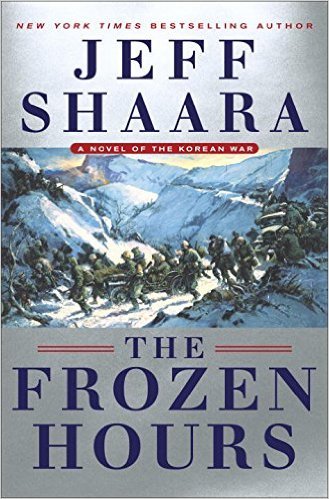What do you think?
Rate this book


The master of military historical fiction turns his discerning eye to the Korean War in this riveting new novel, which tells the dramatic story of the Americans and the Chinese who squared off in one of the deadliest campaigns in the annals of combat: the Battle of Chosin Reservoir, also known as Frozen Chosin.June 1950. The North Korean army invades South Korea, intent on uniting the country under Communist rule. In response, the United States mobilizes a force to defend the overmatched South Korean troops, and together they drive the North Koreans back to their border with China.
But several hundred thousand Chinese troops have entered Korea, laying massive traps for the Allies. In November 1950, the Chinese spring those traps. Allied forces, already battling stunningly cold weather, find themselves caught completely off guard as the Chinese advance around the Chosin Reservoir in North Korea. A force that once stood on the precipice of victory now finds itself on the brink of annihilation. Assured by General Douglas MacArthur that they would be home by Christmas, the soldiers and Marines fight for their lives against the most brutal weather conditions imaginable--and an enemy that outnumbers them more than six to one.
The Frozen Hours tells the story of Frozen Chosin from multiple points of view: Oliver P. Smith, the commanding general of the American 1st Marine Division, who famously redefined defeat as "advancing in a different direction"; Marine Private Pete Riley, a World War II veteran who now faces the greatest fight of his life; and the Chinese commander Sung Shi-Lun, charged with destroying the Americans he has so completely surrounded, ever aware that above him, Chairman Mao Tse-Tung watches his every move.
Written with the propulsive force Shaara brings to all his novels of combat and courage, The Frozen Hours transports us to the critical moment in the history of America's "Forgotten War," when the fate of the Korean peninsula lay in the hands of a brave band of brothers battling both the elements and a determined, implacable foe.
PRAISE FOR JEFF SHAARA'S RECENT CIVIL WAR SERIES
A Blaze of Glory
--Library Journal
"Dynamic portrayals [of] Johnston, Grant and William Tecumseh Sherman."--The Wall Street Journal
A Chain of Thunder
"Shaara continues to draw powerful novels from the bloody history of the Civil War."--Kirkus Reviews
"The voices of these people come across to the reader as poignantly clear as they did 150 years ago."--Historical Novels Review
The Smoke at Dawn
"Beautifully written . . . Shaara once again elevates history from mere rote fact to explosive and engaging drama."--Bookreporter
"Shaara's mastery of military tactics, his intimate grasp of history, and his ability to interweave several supporting narratives into a cohesive and digestible whole . . . will appeal to a broad range of historical and military fiction fans."--Booklist
The Fateful Lightning
"Powerful and emotional . . . highly recommended."--Historical Novels Review
"Readers . . . looking for an absorbing novel will be well rewarded."--The Clarion-Ledger
527 pages, Hardcover
First published May 23, 2017
Retreat, hell. We're just attacking in another direction.(However, there's no sense that this, ah, edited quote is a riff on the classic American WWI line: "Retreat, hell! we just got here!" WWI is also forgotten for most Americans.)
-O.P. Smith (456-7)